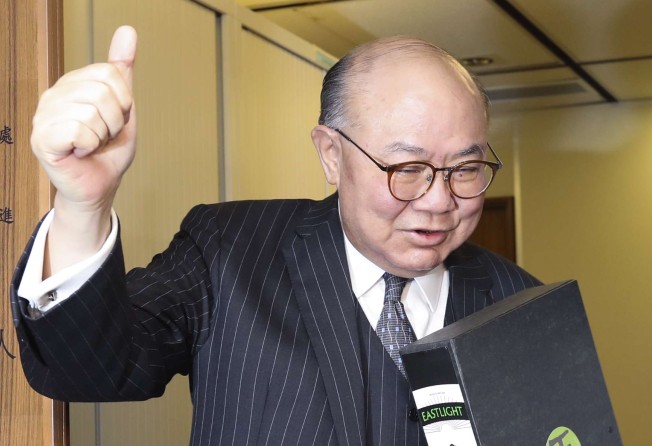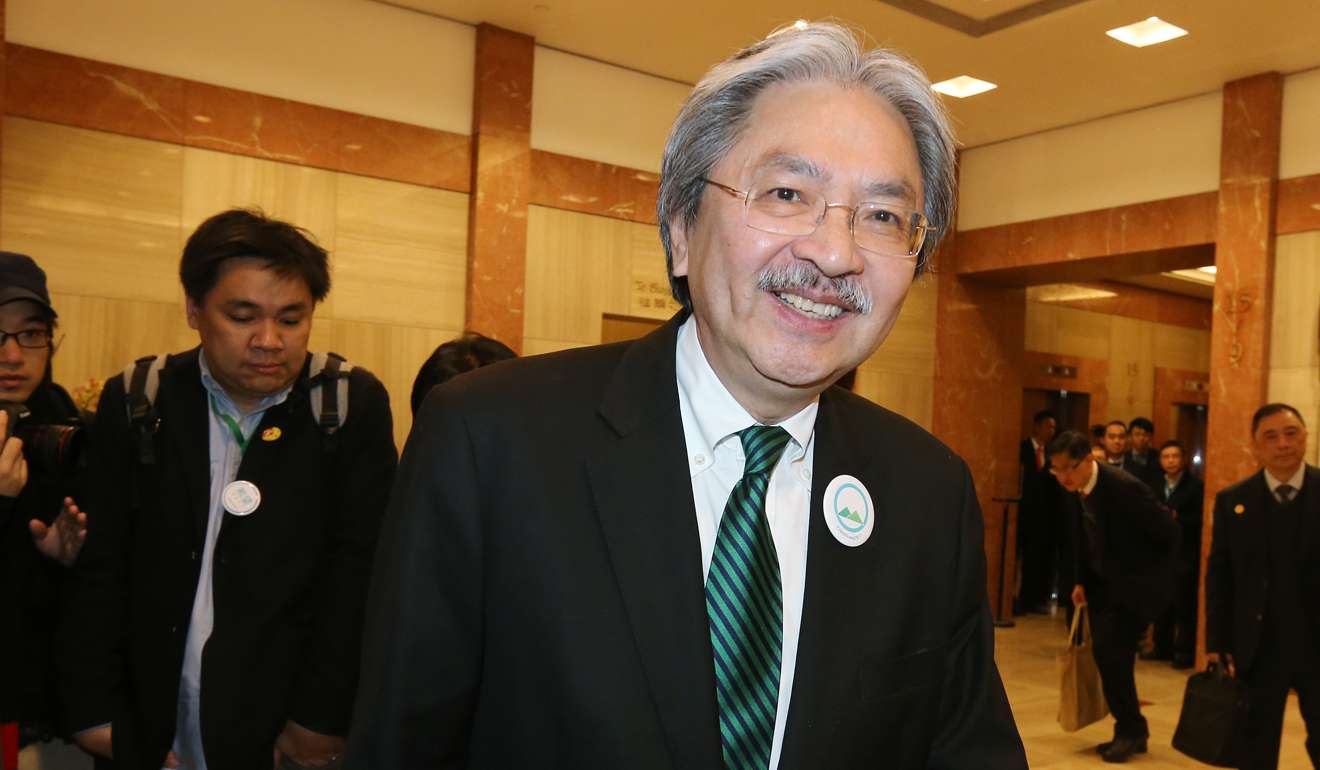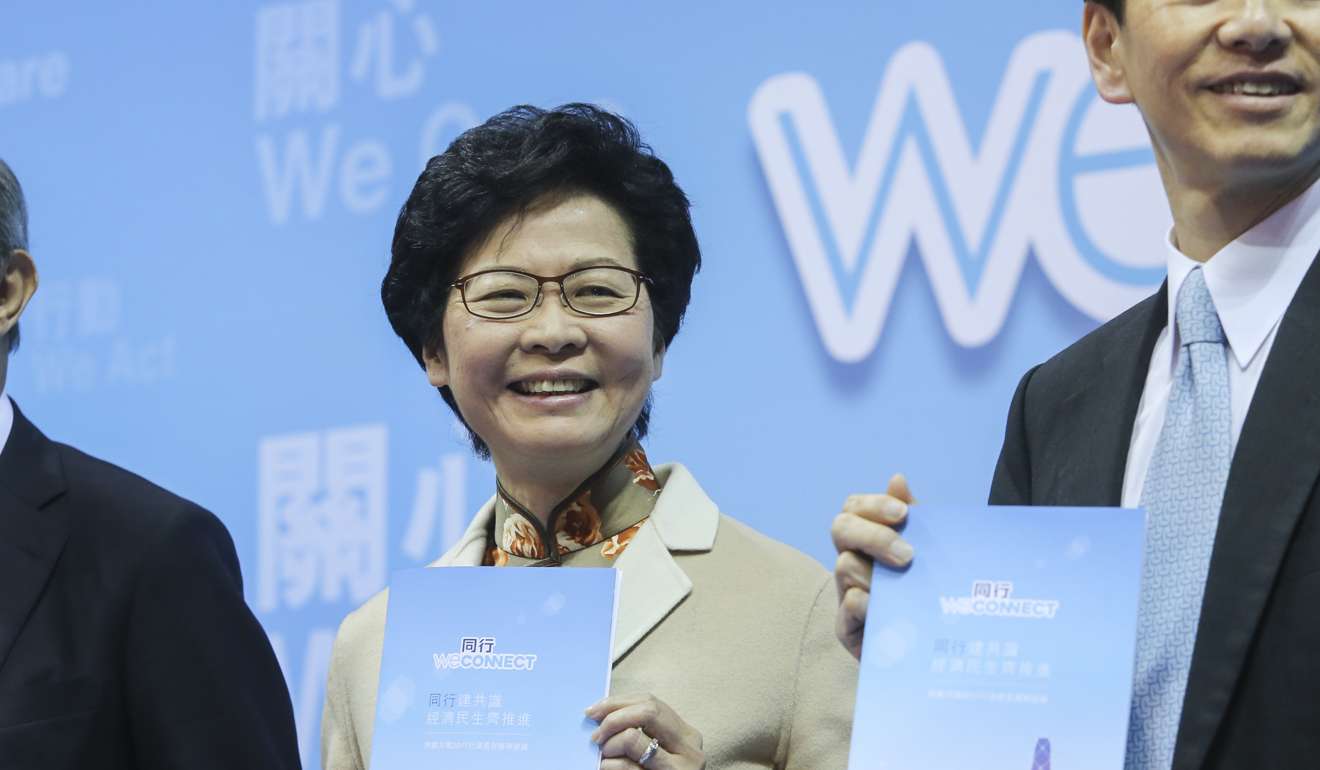Woo Kwok-hing becomes second person to officially stand for Hong Kong chief executive
Apparent outsider hands over pile of nominations bigger than John Tsang’s

Woo Kwok-hing has become the second person to officially enter Hong Kong’s leadership election, handing over a stack of nominations bigger that of former finance chief John Tsang Chun-wah.
On Monday afternoon, the retired judge arrived at the Electoral Affairs Commission office in Wan Chai with more than 180 nominations.
If poll staff validate those nominations – which they were expected to do by Tuesday – the 71-year-old would become the second candidate in the March 26 poll. He would join Tsang, whose 160 nominations the commission ruled valid on Monday morning.
Seen as the underdog, despite being first to announce a run, Woo is viewed as a moderate pro-establishment figure with recognition from across the political spectrum.

Former chief secretary Carrie Lam Cheng Yuet-ngor is expected to join Tsang and Woo on the ballot. Lam, Beijing’s preferred choice, finally unveiled her manifesto on Monday and said she would submit her nominations on Tuesday, a day before nominations close.
The fourth prominent hopeful, former security chief Regina Ip Lau Suk-yee, was struggling on Monday to get enough nominations.
Entrants need 150 nominations from the 1,194-member Election Committee to qualify, and at least 601 votes from the same committee to win.
A public opinion poll commissioned by the Post earlier this month showed 42.5 per cent of respondents preferred Tsang to replace current chief executive Leung Chun-ying – more than supported any other candidate.
After handing in his forms, Woo said he had forfeited six nominations, handing in 180 from the 186 he turned up with.

Asked why he did not simply hand in 160 forms, like Tsang had, Woo said he had offered to return some of the forms but the nominators insisted on backing him.
Election Committee members could in theory use returned nominations to help someone else get on the ballot.
Woo said: “I originally came forward to prevent Leung Chun-ying from getting another term... now I am 200 per cent committed to preventing Carrie Lam from winning the race.”
Woo could struggle to get the required 601 votes, given all his 180 nominations came from the non-establishment camp. But he said some pro-Beijing figures only nominated Lam to toe the establishment line in the non-secret initial process.
Unlike the nomination procedure, the final poll uses a secret ballot.
“Come March 26, these Election Committee members will be able to exercise their free will,” Woo said.
He dismissed suggestions that his candidacy would boost Lam’s chances by splitting the votes of her opponents.
“The more candidates we have, the harder it will be for Lam to receive 601 or more votes in the first round of election,” he said.
If no candidate gets 601 votes on March 26, there will be a run-off election later that day between the candidates in first and second place.
Speaking in an online video, Tsang said he believed Election Committee members would vote with consciences next month, despite concerns that the central government’s liaison office in the city is interfering with the poll.
In an interview with former Democratic Party legislator Emily Lau Wai-hing, broadcast on Facebook, he said: “Beijing has the power of appointment. But the 1,194 members will be voting in a secret ballot and I believe they have their consciences.”
Only 35 of Tsang’s nominations came from pro-establishment figures. He declined to say if any pro-establishment voters who did not nominate him would eventually vote for him.
In the interview, he said the government lacks public trust, and that members of consultative bodies appointed by the government were mostly pro-government.
If he wins the election, he said, he would consider hiring pan-democrats to his team, as long as they are capable.
Additional reporting by Phila Siu